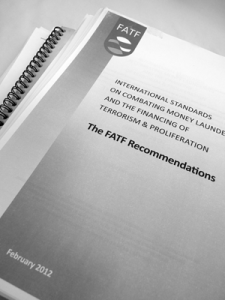 Banking Regulation
Banking Regulation
The payments marketplace is highly regulated at both a national and international level.
The EU called for a unification of the retail payments landscape in Euro via the programme Single Euro Payments Area – SEPA. That project has been running for 15 years and is addressed in three ways in the training offerings:
- Executive briefing on the objectives of SEPA, the means, the history so far and the future prospects and challenges
- SEPA compliance
- Workshop on the strategic challenge of SEPA
To support SEPA and to comply with global regulation, the EU proposed the European Payments Regulatory Package or EPRP, consisting of the 4th EU Anti-Money Laundering Directive, Payment Services Directive 2, as well as the Interchange Fee Regulation and the Regulation on Information to Accompany Funds Transfers.
While EPRP was not passed as a package, we have one course dedicated to it, and two more that go into:
- Payment Services Directive 2, which builds on PSD1 to create wider market access for new players, regulate on the transparency of payments for customers, and limit banks’ income in terms of fees and float;
- 4th EU Anti-Money Laundering Directive, which enacts the latest guidelines on Anti-Money Laundering and Countering the Financing of Terrorism established at a global level under Financial Action Taskforce.
Lastly and specific at the moment to the UK we have the Financial Services Banking Reform Act and its main element: Ringfencing. This is the measure to split a banking group into the “safe” domestic retail, SME, mortgage and cards bank, from the “risky” investment and international activities. Our course covers the theories behind Ringfencing, and the cross-over with the EU Bank Recovery and Resolution Directive, which incorporates the establishment of the Deposit Compensation Scheme.
The courses available are:
- Single Euro Payments Area (SEPA) – executive briefing
- SEPA Compliance
- Strategic Challenge of SEPA
- European Payments Regulatory Package
- Payment Services Directive 2
- 4th EU Anti-Money Laundering Directive
- Ringfencing and the EU Bank Recovery and Resolution Directive
Please click through to find and overview and the agenda for each course.
The benefits of using these training offerings are:
- Condensed and economical
- Reduced risk
- Prepared by a practitioner who has run programmes in these areas
